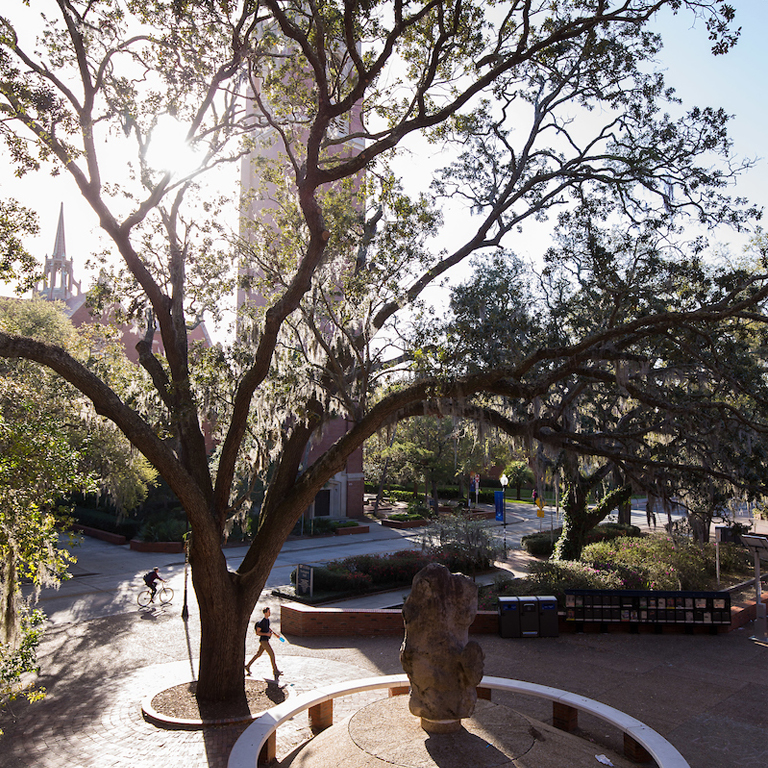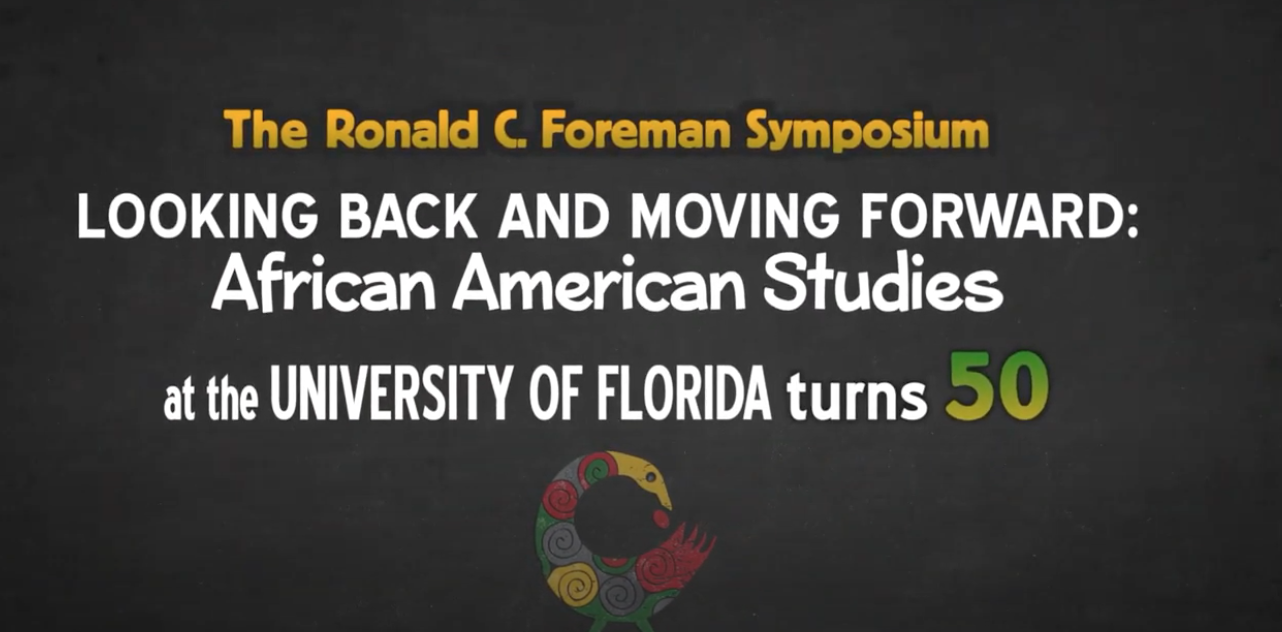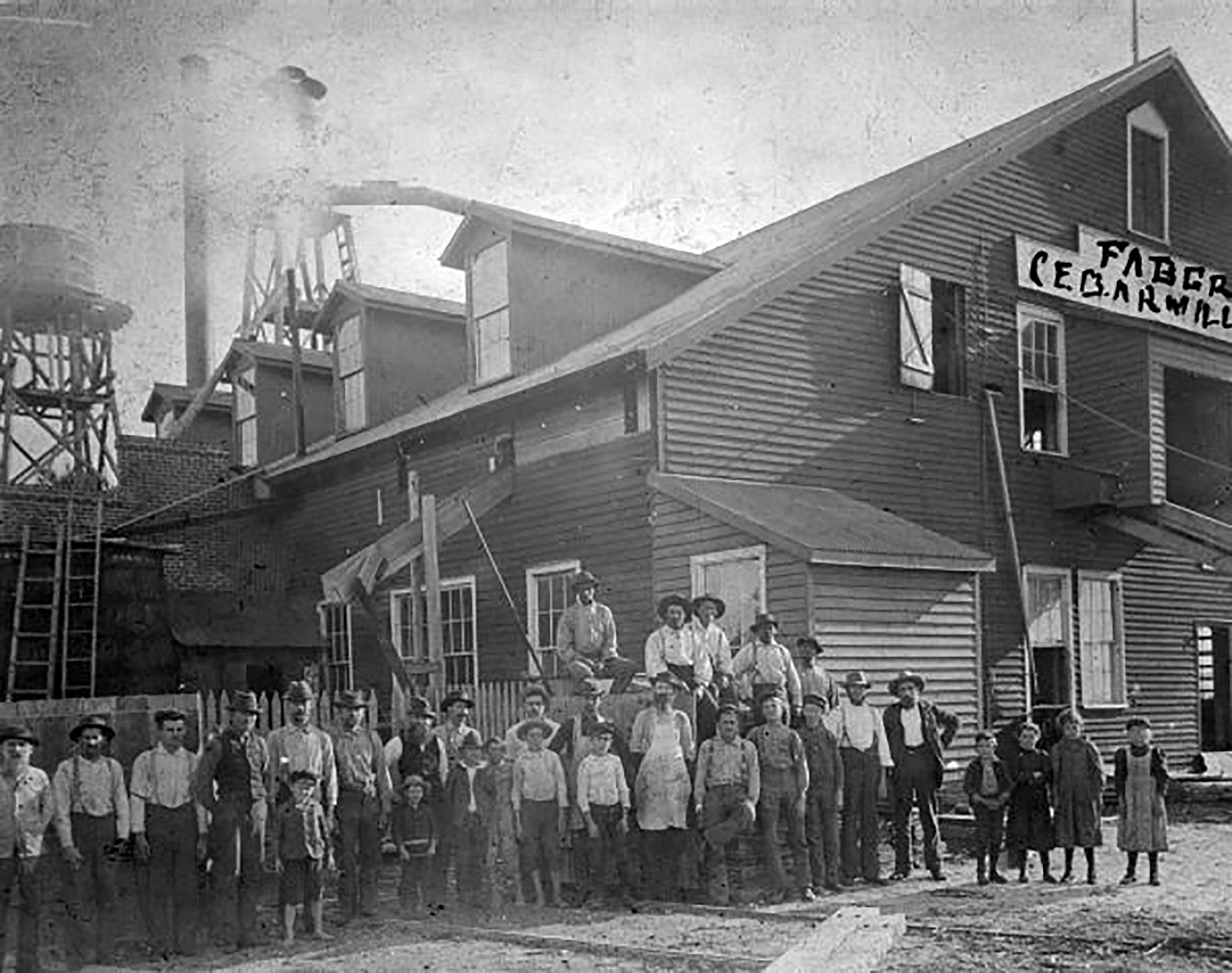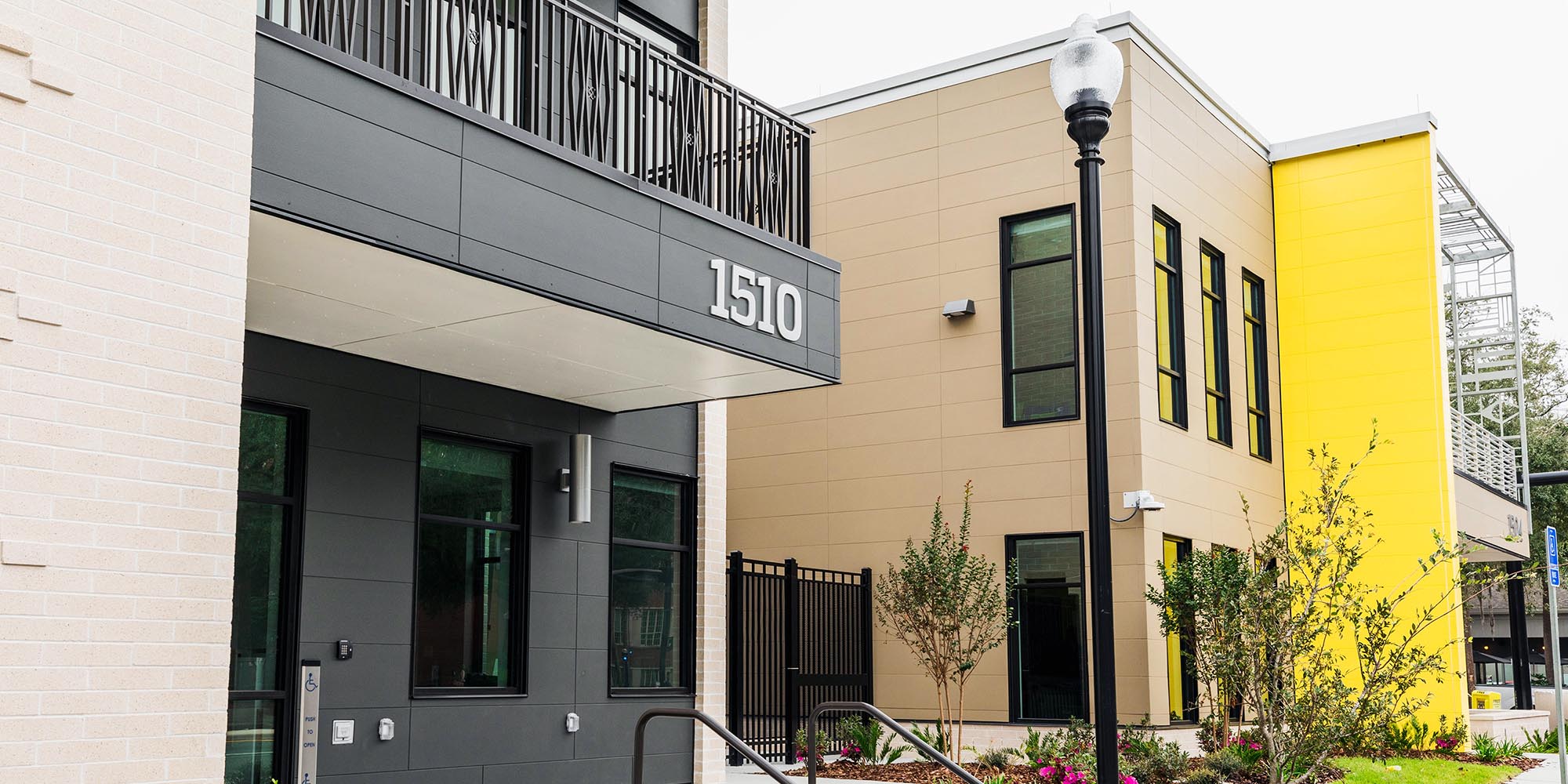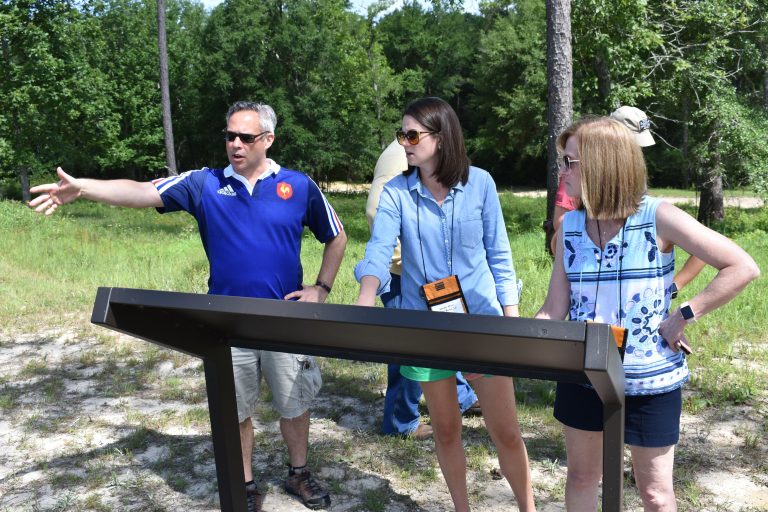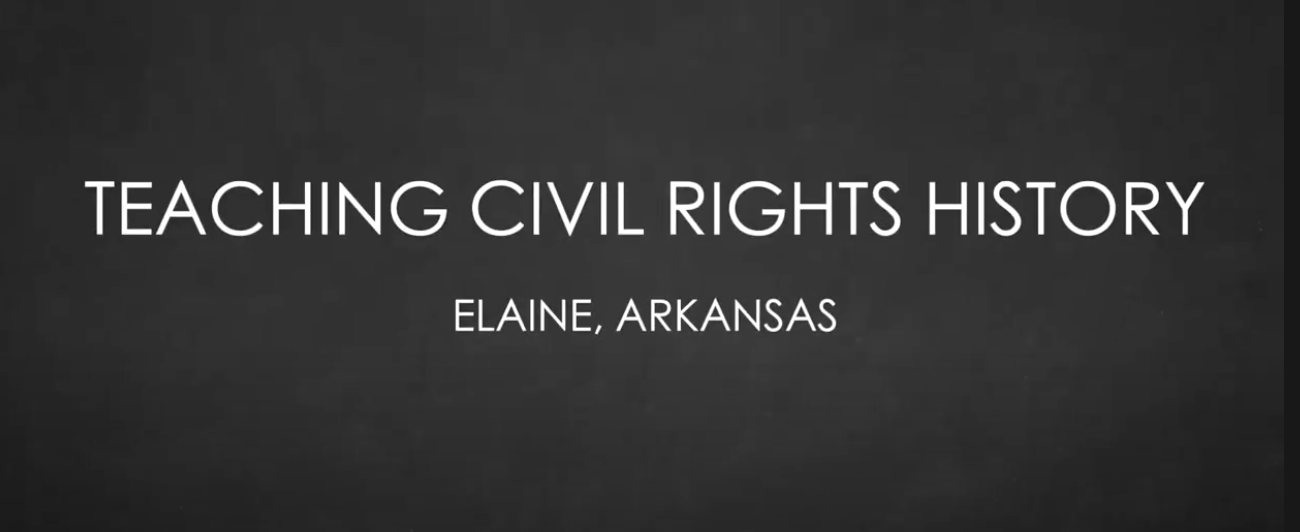2020
With support from the Jerome A. Yavitz Fund, CHPS has awarded one grant in a pilot program for untenured, tenure-track faculty members to receive feedback on their complete draft book manuscript from one external and one internal specialist in a virtual workshop setting. CHPS will reissue the call for proposals in spring semester 2021.
2020
With support from the Jerome A. Yavitz Fund, CHPS has awarded one grant in a pilot program for untenured, tenure-track faculty members to receive feedback on their complete draft book manuscript from one external and one internal specialist in a virtual workshop setting. CHPS will reissue the call for proposals in spring semester 2021.
2020
Dr. Patricia Hilliard-Nunn discusses the founding of African American Studies at the 50th Anniversary of African American Studies at the University of Florida symposium. A frank discussion of the frequent failure of UF to address issues of systemic racism.
2020
Dr. Patricia Hilliard-Nunn discusses the founding of African American Studies at the 50th Anniversary of African American Studies at the University of Florida symposium. A frank discussion of the frequent failure of UF to address issues of systemic racism.
2020
An ongoing project of the Laboratory of Southeastern Archaeology, Storms of the Past, Stories for the Future investigates the relationship between memories of past storms and perceptions of storms yet to come. Although the ultimate objective of this project is to provide policy-relevant information for planning purposes, its method is not to forecast the future but rather to document the “futures past” of historic storms. How do memories of past storms inflect the histories of post-storm recovery and rebuilding? The project started with the 1896 hurricane that impacted the cedar mill industry of Atsena Otie on Florida's northern Gulf Coast and continues with a Gulf-wide survey of other victims of devastating storms.
2020
An ongoing project of the Laboratory of Southeastern Archaeology, Storms of the Past, Stories for the Future investigates the relationship between memories of past storms and perceptions of storms yet to come. Although the ultimate objective of this project is to provide policy-relevant information for planning purposes, its method is not to forecast the future but rather to document the “futures past” of historic storms. How do memories of past storms inflect the histories of post-storm recovery and rebuilding? The project started with the 1896 hurricane that impacted the cedar mill industry of Atsena Otie on Florida's northern Gulf Coast and continues with a Gulf-wide survey of other victims of devastating storms.
2020
Student-produced documentary featuring UF alumni, students, faculty and staff discussing the origins and importance of the Institute of Black Culture at UF. Funded by the Office of the Provost.
The Making of IBC is a documentary film produced by the Samuel Proctor Oral History Program and funded by the UF Office of the Provost. This film draws on oral history interviews conducted by students, staff and volunteers at the Proctor Program to chronicling the history of the Institute of Black Culture, Black students and faculty at the University of Florida.
The Making of IBC examines the student movements that led to the creation and preservation of the Institute of Black Culture. This film draws on oral history interviews conducted by students, staff and volunteers at the Proctor Program.
Juliette Barbera, who initially proposed that we develop this documentary, led the student teams in all aspects from interviewing efforts to the direction of the film itself.
These accounts demonstrate that the fight to maintain the historical integrity of these cultural spaces is inextricably linked to the struggle for ethnic studies and cultural programing throughout campus. Exploring the recurring waves of student activism surrounding this cultural center reveals that this struggle is ongoing and that it will be up to future generations of students to reclaim spaces such as the Institute of Black Culture as their own.
2020
Student-produced documentary featuring UF alumni, students, faculty and staff discussing the origins and importance of the Institute of Black Culture at UF. Funded by the Office of the Provost.
The Making of IBC is a documentary film produced by the Samuel Proctor Oral History Program and funded by the UF Office of the Provost. This film draws on oral history interviews conducted by students, staff and volunteers at the Proctor Program to chronicling the history of the Institute of Black Culture, Black students and faculty at the University of Florida.
The Making of IBC examines the student movements that led to the creation and preservation of the Institute of Black Culture. This film draws on oral history interviews conducted by students, staff and volunteers at the Proctor Program.
Juliette Barbera, who initially proposed that we develop this documentary, led the student teams in all aspects from interviewing efforts to the direction of the film itself.
These accounts demonstrate that the fight to maintain the historical integrity of these cultural spaces is inextricably linked to the struggle for ethnic studies and cultural programing throughout campus. Exploring the recurring waves of student activism surrounding this cultural center reveals that this struggle is ongoing and that it will be up to future generations of students to reclaim spaces such as the Institute of Black Culture as their own.
2020
Working as a historian keeps Dr. Sean Adams in climate-controlled atmospheres — air-conditioned classrooms, comfortable offices, academic panels in staid hotel conference rooms and carefully maintained archives. In the summer of 2018, however, Dr. Adams purposely ventured out into the blast furnace that is western Florida and southern Alabama to see history firsthand, taking 36 teachers of elementary, middle and high school with him, plus a colleague.
The reason for this venture was a joint workshop by the Florida Humanities Council and the Alabama Humanities Foundation titled “The Civil War in the American South.” For the past five years, Dr. Adams has led teacher workshops that combine lectures and field trips to the site of the 1864 Battle of Olustee at Fort Clinch and the haunting slave cabins at Kingsley Plantation in Fernandina Beach.
The idea is to put teachers in the places where history happened so they can bring that experience back to their classrooms, where students might gain a new perspective on the past.
2020
Working as a historian keeps Dr. Sean Adams in climate-controlled atmospheres — air-conditioned classrooms, comfortable offices, academic panels in staid hotel conference rooms and carefully maintained archives. In the summer of 2018, however, Dr. Adams purposely ventured out into the blast furnace that is western Florida and southern Alabama to see history firsthand, taking 36 teachers of elementary, middle and high school with him, plus a colleague.
The reason for this venture was a joint workshop by the Florida Humanities Council and the Alabama Humanities Foundation titled “The Civil War in the American South.” For the past five years, Dr. Adams has led teacher workshops that combine lectures and field trips to the site of the 1864 Battle of Olustee at Fort Clinch and the haunting slave cabins at Kingsley Plantation in Fernandina Beach.
The idea is to put teachers in the places where history happened so they can bring that experience back to their classrooms, where students might gain a new perspective on the past.
2019
A workshop presented in Elaine, Arkansas at the Elaine Legacy Center by the Samuel Proctor Oral History Program. Each year the program makes an annual trip to the Mississippi Delta and surrounds to collect Civil Rights interviews.
SPOHP Presenters are Chris Duryea and Paul Ortiz. During this workshop there is a group discussion on Reparations.
2019
A workshop presented in Elaine, Arkansas at the Elaine Legacy Center by the Samuel Proctor Oral History Program. Each year the program makes an annual trip to the Mississippi Delta and surrounds to collect Civil Rights interviews.
SPOHP Presenters are Chris Duryea and Paul Ortiz. During this workshop there is a group discussion on Reparations.
